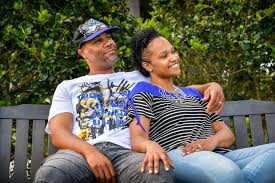6 Questions To Ask Your Partner — And Yourself — Before Getting Married
If you start out with a good foundation, there’s a good chance you’ll be able to weather emotional storms.
Whether you’ve been dating your partner for weeks, months, or years, it’s perfectly normal for the idea of marriage to creep into your brain. You may find yourself asking questions like, “Is this someone I can see myself spending the rest of my life with?” “Are we compatible?” “Is my current partner a good match for me?”
The unfortunate fact is that we can’t always know definitively whether or not someone will be the perfect partner forever. Life happens. Events change. Things could warp on a dime, and the person you were so sure about could turn out to be someone else entirely.
But, if you start out with a good foundation, there’s a good chance you’ll be able to weather emotional storms like that. And luckily, there are simple ways to figure out whether or not you and your partner are good matches for one another in the long term. Ahead, Dr Amie Harwick, a marriage and family therapist, breaks down questions you should ask before marriage, both to your partner and yourself.
Ask Your Partner These Questions:
What does marriage look like to you?
What are your values on money, children, and buying a home?
How do you think married couples should handle conflict?
“These questions are important because they indicate some level of clarity on values, expectations, and conflict resolution,” Dr Harwick says. “Part of identifying if a partner is a good fit for you is to be able to communicate about values and expectations in the relationship.” While it’s common to believe that passion for one another is the main driver in a long-term relationship, Dr Harwick says that it goes beyond that.
“The saying that birds of a feather flock together is absolutely true,” she says. “Similarities and values are very important for relationship longevity and sustainability.” In other words? Love doesn’t conquer all. If you’re looking for a partner to spend your life with, it’s important to align on big-picture ideas — which is what all three of these questions tap into.
Now, while it may be tempting to blurt all these questions out on a third date so as not to waste your time, it’s important not to rush these conversations — especially if you and your partner are young when you start date.
“Questions like this should be brought up when the relationship is becoming more serious and marriage is being considered,” Dr Harwick says. Why? Well, because if you start dating at 22, your answers might be vastly different then from when you decide to get married at 29.
And if you guys aren’t completely aligned on every answer, there’s no need to panic. “You should be looking for answers that indicate similarity at the most, and, at the least, the ability to conflict resolve and compromise,” Dr Harwick says. That ability to compromise will take you further than anything.
But make sure you’re both willing to compromise, and one partner isn’t just bending over backwards to appease the other. “Be direct about what you were looking for, what your values are, and listen to what your partner is actually saying,” Dr Harwick says. “Don’t minimize when they give you an opinion that you don’t agree with.”
Ask Yourself These Questions:
What are my feelings and thoughts related to marriage?
What did my parents/caregivers model in their behaviour about marriage? How does that impact me now?
Am I willing to compromise on my partner to make joint decisions?
The difference between asking yourself questions and asking your partner questions? You can check in with yourself at any time.
In fact, the first two questions that Dr Harwick mentions may evolve and change depending on which partner you’re with. For that reason, it’s a good idea to do a regular check-in with yourself to see how your feelings are evolving.
And, if you need a little help or guidance exploring these questions more deeply, don’t be afraid to check in with a therapist. “it is imperative to explore what not only your values are, but what behaviour was modelled to you that might impact your perspectives,” Dr Harwick says.
Question three is an important one, too, because it requires us to be truly honest with ourselves — something that might not come naturally for everyone. Compromise requires both parties to meet in the middle — not just one. So make sure you’re honestly willing to put that work in, too. It’s the key to a successful marriage.



